The forum discussed the environmental reality and the extent to which water infrastructures has been affected by the measures taken in Iraq and the region to confront the Coronavirus pandemic. The outcomes of the first 2019 Water Forum were also reviewed, as was an assessment of what has been accomplished already. The forum witnessed the participation of more than 100 activists over the two days, including representatives from the Water Protection Network in Iraq (Humat Tigris and Humat Al-Furat), academics and specialists, activists interested in environmental issues, and representatives of a number of environmental civil society organizations.
The forum sought to find answers to a number of pivotal questions related to the environment file in the current period, including the impact of those measures now in place to prevent the spread of the virus, the possibility of water provision and the development of water-related infrastructures in Iraq. The speakers reported on the challenges posed by preventive measures and their impact on all levels of society, yet they also insisted that this moment, despite its very real difficulties, constitutes an ideal opportunity to relieve the environmental system from some of the burdens it now faces due to excessive consumption and high pollution rates due to industrial, agricultural and residential activities. The cessation of many of these activities during the period of domestic quarantine has had an extremely positive effect on the environment. Participants in the forum considered ways these impacts might be sustained in the future given the return of polluting activities after the end of the crisis.
Speakers reported on water related infrastructures and said that measures taken to meet water needs during the period of curfew have contributed to reducing overall water consumption rates, despite the fact that the majority of the population is at home leading to increased domestic water consumption. The explanation lies in the fact that the percentages of domestic water consumption does not match that of industrial and agricultural consumption, which decreased significantly during this same period. As a result, more water is available. However, activists believe that the imposed curfew may double the demand for local agricultural production, which will entail higher water use in the coming period. Given this, is necessary to study different ways to respond to this anticipated need and to ensure that adequate quantities of water are available to meet the national need, both domestic and agricultural.

According to Salman Khairallah (executive director of the Humat Dijlah Association), Iraq has good water surplus this year, but the problems of water management still cast a shadow: he warned that mismanagement of water recourses, the cultivation of crops which demand high water-consumption, the excessive use of river water by owners of farmland and fishermen, and a failure of authorities to stop abuses including the continued presence of pollutants carelessly thrown into rivers by different actors, all weaken the possibility of guaranteeing a future of abundant water. He also stressed the need to treat wastewater, an issue which has become a sensitive one given the role that water might play in increasing the spread of the epidemic.
The forum also explored the impact of foreign dams on the Euphrates and Tigris rivers, especially in countries which lie upstream. Dams, continue to jeopardize Iraq’s chance of achieving genuine water security. According to Salman, Turkey is still moving forward with its Great Forest Project and the completion of its dams, while Iran continues to construct irrigation projects, reservoirs and dams of various sizes on the tributaries of the Tigris. Neither country is taking into account Iraq’s water rights nor the needs of its residents, and the Iraqi government has not actively pursued the issue, effectively failing to negotiate Iraq’s water rights.
On the first day, the meeting explored the issue of local dams. Activists explained that Kurdistan is seeking to build three new dams near the Iraqi-Turkish border on the upper Zab (one of the tributaries of the Tigris River). Activists, denounced the proposals and rejected the possibility of building more dams as this would mean losing more land and depriving residents of their right to water. Some, noted that the natural reservoirs (lakes, swamps, and marshes) spread throughout Iraq, represent a sustainable and environmentally friendly alternative to dams if their suggestions are adopted. Water, these activists insist, can be stored in these bodies, instead of building more dams. It is also possible to utilize the method of water dredging (ridding the river of sediments and reeds) to increase the water storage area in all regions of Iraq.
Activist Samim Salam, coordinator of Humat Euphrates in Ramadi, gave a briefing on water in Anbar province, stressing that the current abundance of water does not negate the fact that abuses on rivers and tributaries constitute a continuous challenge to water security in the province. Another activist, Asaad Al-Kenani, the coordinator of Humat Tigris in Maysan, indicated that the current abundance of water does not eliminate fears of a recurrence of future crises given the lack of good water management in the city, after all, the central marshes still suffer from scarce water.
On the second day of the forum, an announcement from the first regional water forum in 2019 was read (click here to read the announcement), in which speakers stressed that mutual regional efforts and constructive communication between civil society forces in the region should continue in an effort to enhance solidarity and elevate the water issue as a regional one, closely tied to the security of the region and the future of their people. As it stands now, the issue of water remains outside the political will of the governments of the concerned countries. Dr. Ismail Dawoud (from the Save the Tigris campaign) stressed that the efforts of civil society in the region have resulted in the birth of a new cross-border stream. Various civil society groups and organizations have worked to oppose opportunistic water management policies pursued by some countries who use the Tigris and Euphrates rivers, and this in turn has strengthened the ability of civil society to express and realize the will of the people and to communicate their voices as never before. In short, a united and strong civil society, movement has directly contributed to obstructing giant projects which took into account the interests of partisan and self-interested governments more than the region’s future, especially its water food security and environmental sustainability.
Dr. Muhammad Ali (teaching at the College of Agriculture at Wasit University) stated that Iraq needs to understand and identify its water fingerprint to ensure the provision of national needs and to avoid the wasteful consumption of water resources. A ‘water fingerprint’ is the total amount of fresh water that is used for the production of goods and services consumed by the individual, society or a particular company.
As for legal remedies for environmental problems, attorney Israa Falah (a member of the administrative body of the Humat Tigris Association) explained that Iraqi laws and legislation do provide some guarantees to protect the environment, including water sources. However, this legislation alternates between being too weak in dealing with urgent water issues, or its application is insufficient so that those who want to are able to work around the laws when it’s in their interest to disrupt it.
Activists Raafat Al-Hiti and Laith Al-Ubaidi (representatives of Humat Tigris in Anbar and Diwaniya) recommended that new classes should be offered to the public, gathering together academics, artists, media and university students who would then participate in the second regional water forum.
The second meeting of the Water Forum is scheduled to be held in the Turkish city of Diyarbakir next year. The Digital Forum for the Water of Mesopotamia will take the early preparatory steps to prepare for the event, and will take place on the 16 and 17 May 2021. The Humat Tigris Association calls on researchers and all those interested to send papers based on their areas of specializations to participate in the upcoming international event to: [email protected]
Iraq – Baghdad | Humat Dijlah
April 2020
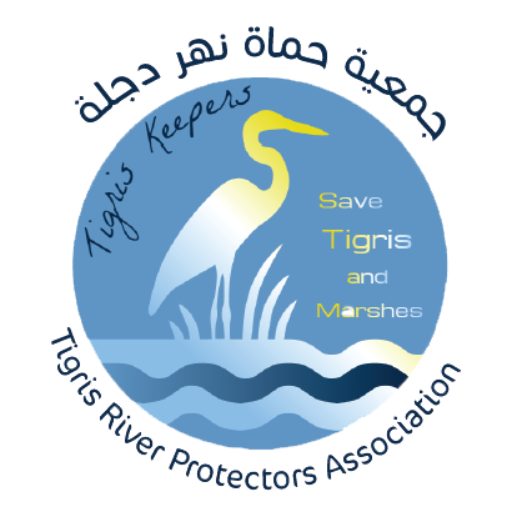
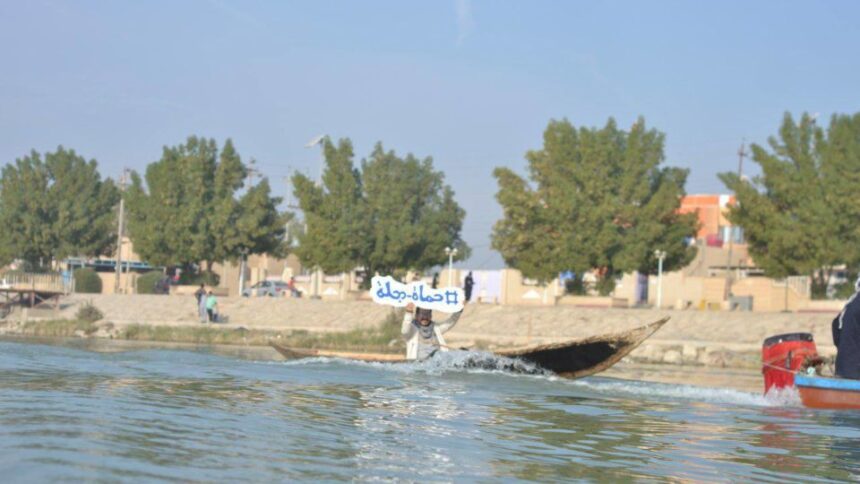
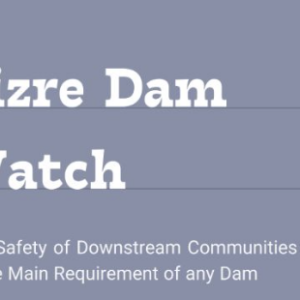
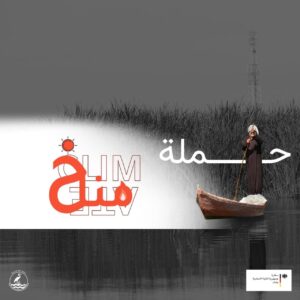
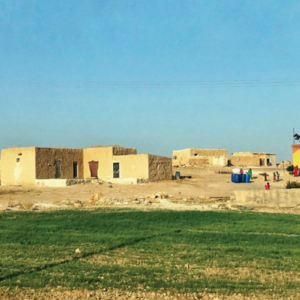
Leave a Reply